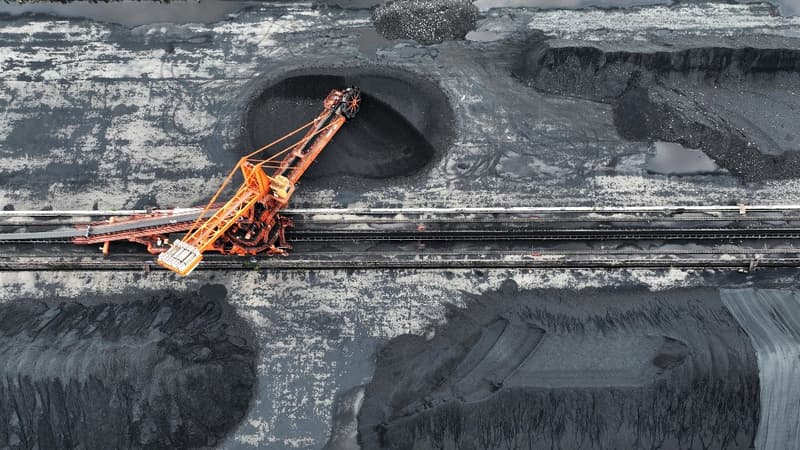Faced with extreme heat this summer, power shortages and rising oil and gas prices, China has increased its coal production, raising concerns about the climate consequences of this choice. President Xi Jinping had pledged to reduce coal use from 2026 as part of a series of commitments to cut China’s CO2 emissions by 2030 and achieve carbon neutrality by 2060.
China, the world’s largest emitter of greenhouse gases, has reduced its CO2 emissions for four consecutive quarters due to slowing economic growth, according to a study published in early September by the Carbon Brief climate watchdog. But to revive its economy, the authorities rely on an increase in the production of coal, a source of energy that is especially harmful to the climate.
This policy of support for this sector, which concentrates most of its electricity production, worries experts who fear that it will complicate a possible transition towards greater use of renewable energies. Last fall, fearing a power shortage, authorities ordered coal producers to increase their extraction capacity in 2022 by 300 million tons, the equivalent of one more month of coal production for the country.
climate goals
In the first quarter of 2022, Chinese regulators licensed coal mines with a total capacity of 8.63 gigawatts, according to Greenpeace. This is already almost half of the approved capacity for all of 2021.
In recent weeks, due to an unprecedented heat wave, greater amounts of coal have been burned and extracted to run air conditioners and compensate for the drop in production from hydraulic dams due to the drying of water courses. In June, Premier Li Keqiang called for “increasing coal production capacity as much as possible and establishing long-term coal supply.”
According to the independent organization Climate Action Tracker, even the “tightest” climate targets set by Beijing in the fight against global warming would lead to global warming of 3-4°C before the end of the century, well beyond the goal of the Agreement. from Paris. to limit global warming to 1.5°C.
To achieve this goal, China will have to “reduce its emissions as soon as possible and well before 2030” and “reduce the consumption of coal and other fossil fuels at a much faster rate than expected.” Beijing’s reluctance to give up coal is explained in part by the inefficiency of its electricity network, which does not allow the transmission of surplus energy from one region to another.
sense of security
Coal and gas provide an immediate source of energy and are, in practice, “the only way local authorities can avoid electricity shortages,” researcher Lauri Myllyvirta wrote in a Carbon Brief report.
China, however, has made real progress in renewable energy. The country’s current operational solar capacity is nearly half of the world’s total, according to the San Francisco-based NGO Global Energy Monitor (GEM). But unlike wind or solar power, coal and gas reserves can be held and used as needed, giving local authorities a sense of security.
However, building more coal-fired plants means less focus on solving grid problems, Myllyvirta told AFP, fearing it could push plant owners to “slow down the transition” because they will have an interest in using their new assets.
Meanwhile, the central government wants to “avoid large-scale blackouts, like the ones that hit northeastern provinces last winter, in this politically crucial year” for Xi Jinping, according to Byford Tsang, senior policy adviser at the think tank on E3G weather. President Xi is expected to secure an unprecedented third term in the Communist Party Congress on October 16.
war in ukraine
Byford Tsang said rising global energy prices, due to Russia’s invasion of Ukraine, also pushed Beijing to boost domestic coal production, pointing to a 17.5% decline in coal imports. in the first half of 2022 compared to last year.
“The more China bets on coal now, the more difficult it becomes to finance and deliver renewable energy projects later,” Wu Jinghan, Greenpeace East Asia project manager for climate and energy projects, told AFP. “The longer we wait for the transition, the more complicated the road to transition becomes,” he added.
Source: BFM TV


